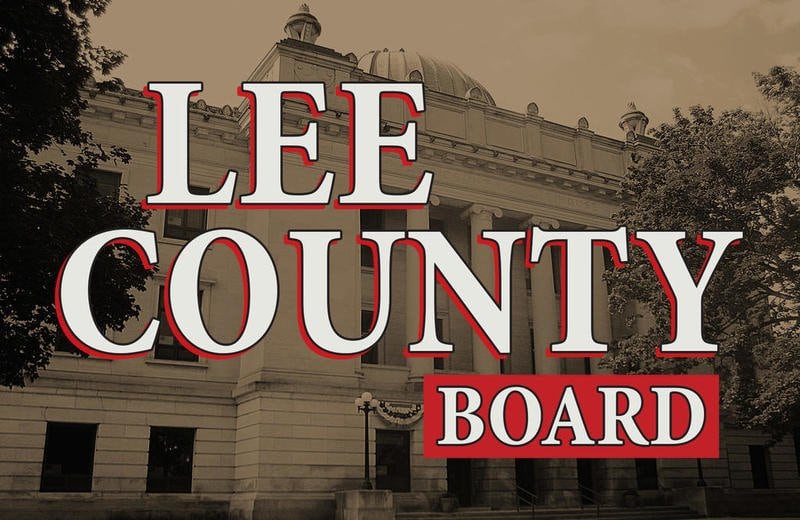The Lee County Board will vote on the fiscal 2026 proposed tax levy and budget at its Nov. 20 meeting.
The proposed 2025 property tax rate is 82.42 cents per $100 of equalized assessed value, an increase from the 2024 rate of 79.46 cents. If approved, the 2025 rate would result in an estimated tax bill increase of $13.03 for a home valued at $150,000, according to the proposed tax levy ordinance.
The proposed total 2025 tax levy request is $9,904,565, which is $441,506, or 4.67%, more than what was levied for 2024, according to the proposed ordinance.
The proposed fiscal 2026 budget is balanced, meaning the county spends the same amount of money it takes in, as required by state law, according to the proposed budget ordinance.
The board voted at its Oct. 23 to place both ordinances on file, which is standard practice for all ordinances to allow for residents to voice their opinions. The Nov. 20 meeting starts at 6 p.m. and is held on the third floor of the Old Lee County Courthouse at 112 E. Second St. in Dixon.
All meetings can also be live streamed via the county’s YouTube channel.
Lee County property owners: what it means for you
“When we put the work in to calculate our levy and our budget, we try to be as conservative and responsible as possible. We are doing our best to look at the impact to our residential tax base and we’re trying to limit that as much as possible,” Lee County Administrator Jeremy Englund told Shaw Local.
The county’s Finance Committee works on the levy and budget all year. Then, the county holds budget hearings for about two months to go through each department’s expenses and requests, Lee County Financial Director Reid Mitchell told Shaw Local.
In the proposed fiscal 2026 budget, overall spending has increased, but that’s not surprising because about 75% of the expenses are for its staff, Lee County Finance Committee Chairperson Jim Schielein said Oct. 23.
The levy and budget go hand in hand, Mitchell said.
Property taxes are billed using the 2025 calendar year from Jan. 1 to Dec. 31 and payable in fiscal 2026, which is what the budget is built using. In Lee County, fiscal 2026 is from Dec. 1, 2025 to Nov. 30, 2026, Mitchell said.
In general, taxes are a significant revenue source for the county. For fiscal 2026, the proposed budget estimates a total revenue of about $17.5 million; of that, about $13.4 million is estimated to come from different types of taxes, according to the proposed budget.
Those taxes are collected by the county and then, most of it, is distributed to other agencies, Mitchell said.
For property taxes, a resident’s bill “could go up or down depending on how your assessed value changed,” he said.
The amount billed is calculated using a taxing body’s rate and a property’s equalized assessed value calculated using multiple different numbers related to the value of a property, Mitchell said.
Lee County is only part, usually about 10%, of the total amount billed to a property, Mitchell said.
“There are multiple other taxing bodies that we have no control over. They set their own levies. They do their own thing,” Mitchell said.
Mitchell encouraged residents to speak with county officials if they have questions or concerns about their bill.
“We are trying to do our best. We do take pride in trying to make sure that we’re a professional government organization,” Englund said.
For information, call 815-288-5676.

:quality(70)/s3.amazonaws.com/arc-authors/shawmedia/0e4ec010-1273-46f1-8fc4-c5fe7fe40794.png)